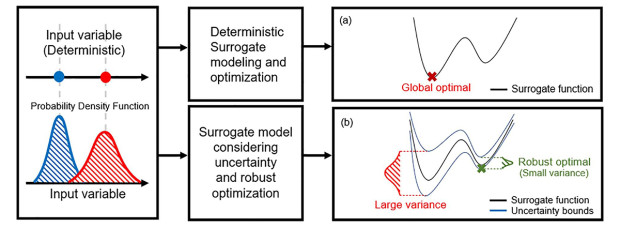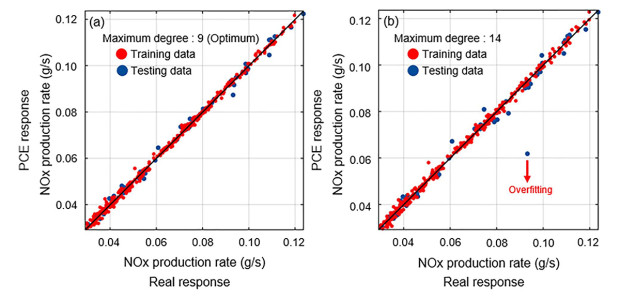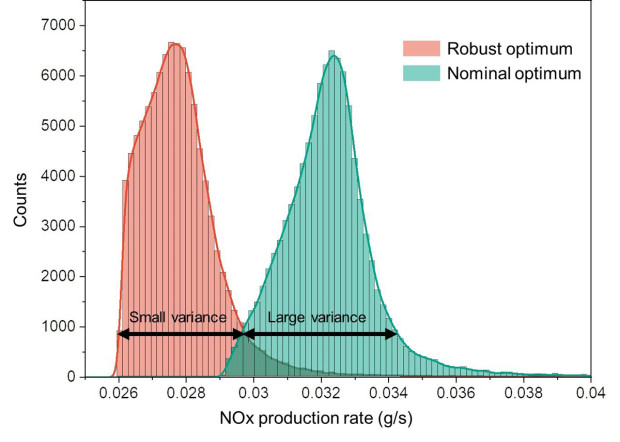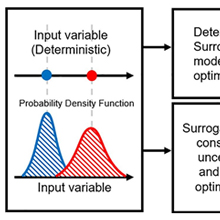본문
Data-driven robust optimization for minimum nitrogen oxide emission under process

By prof. Jonggeol Na,
Chemical Engineering and Materials Science
Research Profile
jgna@ewha.ac.kr
The explosive waste materials used in military weapon systems are disposed by incineration through a fluidized bed reactor. In this process, pollutants such as nitrogen oxide (NOx) are inevitably generated. In particular, the reduction of NOx in the atmosphere is essential because it causes acid rain, global warming due to ozone destruction, and smog. Consequently, it is necessary to find the optimal operating conditions that can minimize the NOx emissions in the actual process in which large amounts of NOx are emitted. However, because various uncertainties exist in the actual process, deterministic optimization is difficult. Here, we introduce a robust optimization framework that finds the optimal operating conditions for parametric uncertainties through data-driven polynomial chaos expansion. By operating the incinerator under the optimal operating conditions obtained through this optimization framework, NOx emission was stably reduced despite uncertainties of explosive waste particle conditions; compared to the nominal optimum, the mean of NOx production rate decreased by 13.6–13.9% and the variance decreased by 36.1–36.3%.

Figure 1. Comparison of (a) deterministic optimization and (b) robust optimization considering uncertainty.

Figure 2. PCE model accuracy of (a) 9th degree, and (b) 14th degree polynomial and overfitting according to maximum degree of polynomials.

Figure 3. Distribution of NOx emission.
* Related Article
Minsu Kim, Sunghyun Cho, Kyojin Jang, Seokyoung Hong, Jonggeol Na, Il Moon, Data-driven robust optimization for minimum nitrogen oxide emission under process uncertainty Chemical Engineering Journal Volume 428, January 2022
